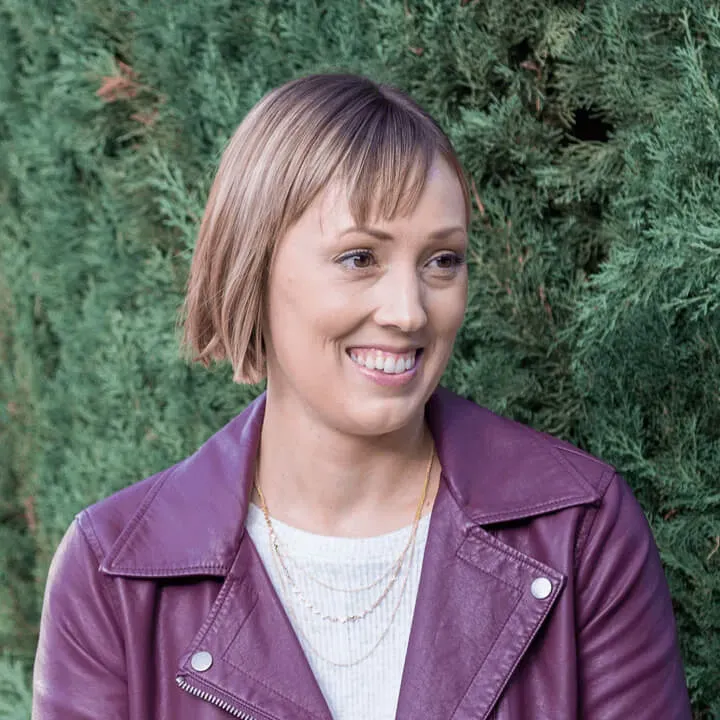An estimated $8 billion is spent each year on diversity trainings, yet studies show these rarely work and, in the worst case, can actually lead to more bias in the workplace.
Some argue trainings miss the mark because they point out what employees need to do differently but rarely reach the more important goal of fostering a sense of belonging for each team member.
Kirsten N.J. Byron, MS ’18 thinks leaders need not only build teams with people of various backgrounds, but aim to create a sense of inclusion. Byron wants to help businesses with that and, in turn, fight what she calls her “biggest frustration” — wasted human capital.
“I see it every day in some fashion,” Byron says. “Someone is not being understood, or someone is not communicating well, or someone is not seeing the potential in someone else.”
A lack of cohesion within an organization could lead to lower performance, too. A study by Stanford University professor Greg Walton found that when students from minority groups received a “social intervention” that created a sense of belonging, their grades improved and so did their sense of perspective. “With women in engineering, we found a social intervention increases their confidence in their ability to handle daily school stressors … and helps them, over time, through a variety of processes, to feel at home in the environment, something that’s really important for achievement,” Walton says in an interview. “I think the psychological processes could be similar in work situations.”
These concepts have been embraced by Byron, who started her career in the tech industry at Box, a Silicon Valley data-storage firm that prioritizes building diverse teams. In 2012, she helped establish Box Women’s Network to connect and empower women across the company. One of the network’s big wins was extending parental leave for men and women.
“It was often less about the policy and more about making sure people took the full leave,” Byron says. “We wanted to help create a culture where people felt encouraged to take the time they needed.”
It was natural, then, that when Byron came to Stanford Graduate School of Business in the fall of 2017, she felt driven to create a sense of belonging among her peers. Byron teamed up with David Kingbo, MS ’18, to start a diversity and inclusion chair within the Student Association.
“At first, students thought having a diversity and inclusion chair meant the class was doing something wrong,” Kingbo says. “They were questioning why we were doing it, but Kirsten stood firm and was faithful to her values. We had to ask ourselves why diversity mattered to our class.”
Byron and Kingbo encouraged students to have uncomfortable conversations on a regular basis. They set up “Ask Me Anything” meetings where Sloan Fellows volunteered for the hot seat while their classmates fired off questions, sometimes professional, often very personal.
“I feel more confident and better equipped to be an ally to an identity that’s not my own,” Byron says. “One of the toughest things is not comparing experiences — but really creating spaces where everyone can feel they belong.”
During her year at Stanford GSB, Byron was a fellow at Pear VC, a seed stage fund in Palo Alto. She considered going into venture capital and spent time talking with various firms. The VC community “An industry that absolutely needs a perspective of belonging and inclusion, and is working on it,” she says.
While a fellow in the venture capital sector, Byron forged ahead with her work on campus. She was a teaching assistant for Equity by Design: Building Diverse and Inclusive Organizations with Fern Mandelbaum, lecturer in management and Adina Sterling, assistant professor of organizational behavior.
At the same time, Byron reconnected with acquaintance Joelle Emerson, JD ’11 and CEO of Paradigm, a diversity and inclusion strategy firm that works with companies to build strong, more inclusive organizations. After graduating from the Stanford MSx program in 2018, Byron accepted a position at Paradigm to lead client success and business development.
“It’s mission-driven toward something I really care about, yet still within a for-profit business,” she says.
Despite her expertise, Byron knows her work with diversity and inclusion will never be straightforward. “It’s not about best practices yet — we’re all just trying to be better,” she says. “But mistakes will help us see what mistakes look like, because, as I have found working in teams with people very different than myself, magical things can happen with diversity.”
Photos by Kiefer Hickman


